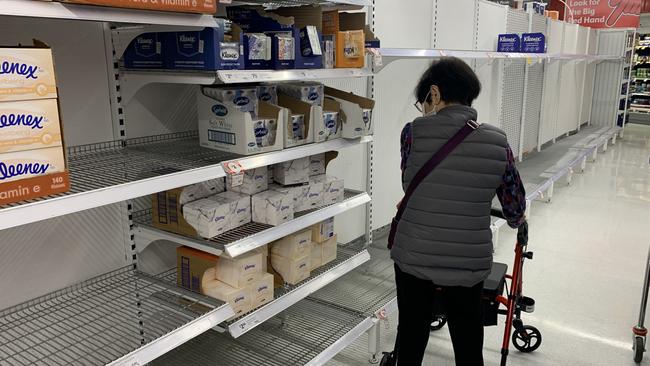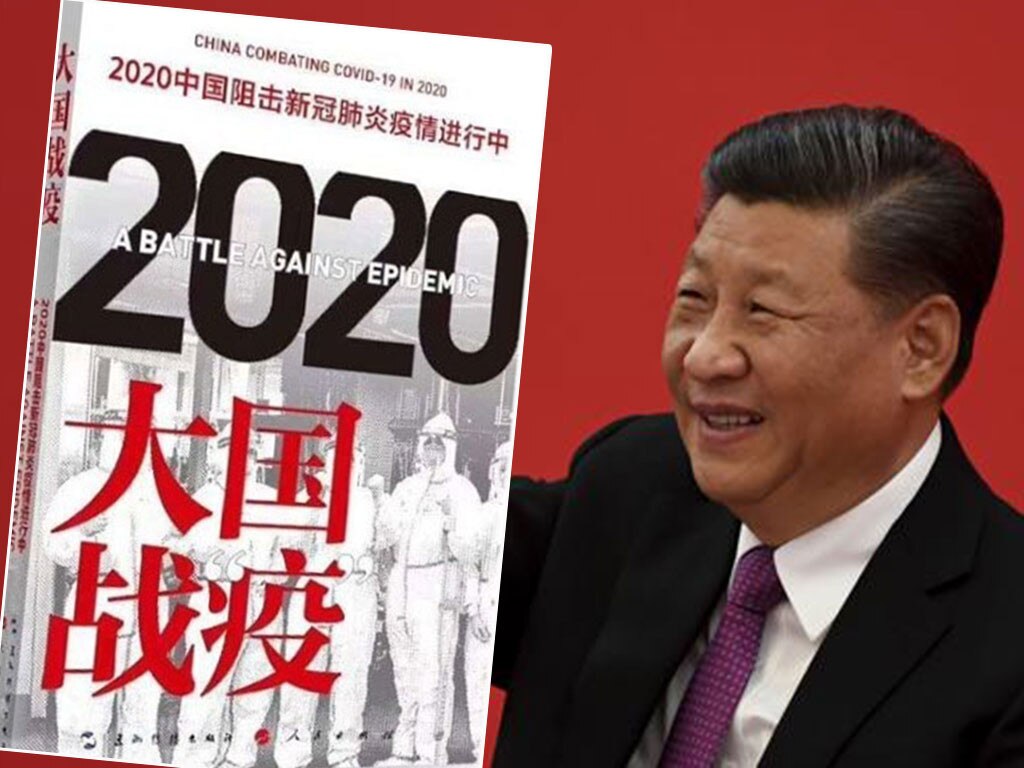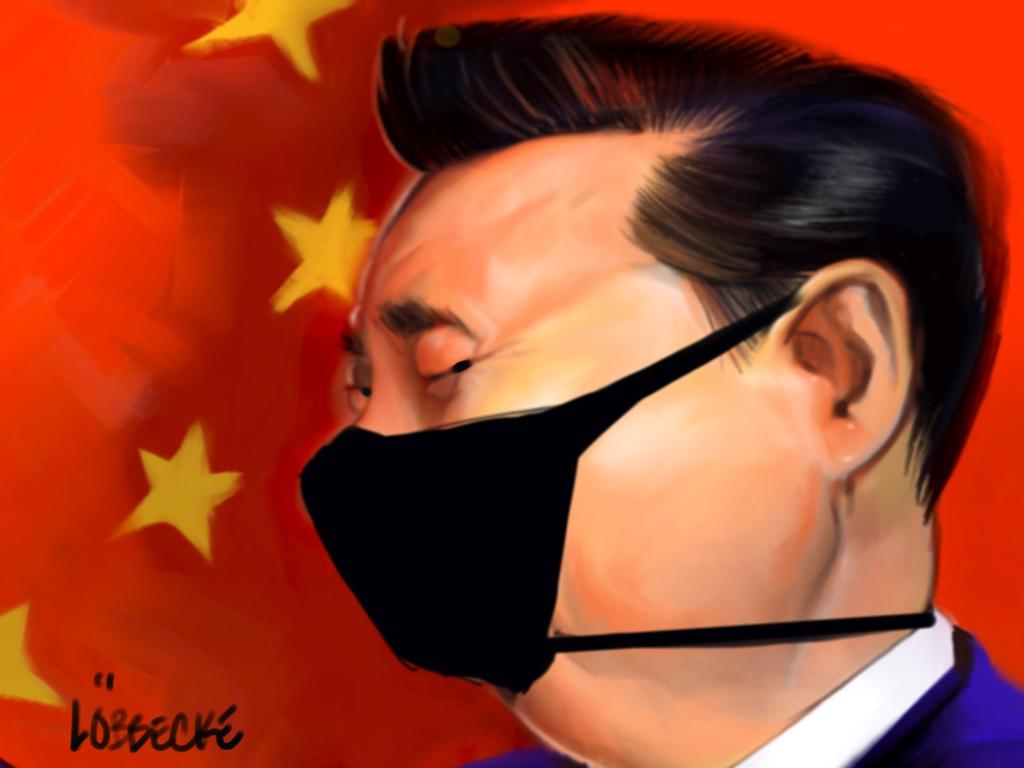Forget the UN, we need to do what’s best for Australia
It is time to panic! We are all going to die. Hold on to your toilet paper rolls, I am not talking about coronavirus.

Hold on to your toilet paper rolls, I am not talking about the coronavirus. The threat to which I refer is global warming.
These are the messages we get daily from green-left politicians, activists, publicly funded media, other journalists and a range of other institutions when it comes to climate change action. The hysteria and alarm, the retreat from rationalism and surrender to emotionalism, turn on its head all that we have learned as a fact-based civilisation since the Enlightenment.
Imagine for a moment that we reacted to COVID-19 the way we do to climate change. The ABC and the Canberra press gallery would be lionising the panicked toilet paper hoarders, Labor would be advocating a heavy tax on international travel and Extinction Rebellion would be supergluing face masks on anyone daring to venture out in public.
The coronavirus has provided a real-time and real-life demonstration of some of the realities of dealing with global threats. It is a timely reality check on much of the irrational debate promoted by politicians, activists and journalists when it comes to global warming.
The first point is alarmism. It is not sensible to declare a catastrophe unless it is upon us. Promoting hysterical responses serves no purpose except to advance some vested political or commercial interests, when the response to a dilemma should be calm, methodical and fact-based.
Catastrophist approaches can only frighten people, create irrational reactions and distract us from practical and sensible actions; look no further than the climate debate to see how this has played out. The green left understands this when it comes to coronavirus but deliberately subverts it when it comes to climate.
Another crucial lesson is that global problems expose us to international actions beyond our control. China’s mishandling of the outbreak, its authoritarian efforts to silence those warning about the disease, and the drastic economic consequences that have ensued have all been far outside of our influence yet have huge ramifications for our nation and many others.
Disruptions to the Chinese exports we rely on, including the annual influx of tourists and students we have deliberately blocked, are devastating our economy and interrupting our supply chains. Nothing we do, short of devising a vaccine, can resolve the root cause of the problem in China.
It is likely to get worse as Chinese stagnation reduces demand for our resource and agricultural exports. The only thing we can determine is our response — it remains open to us to relax or tighten travel restrictions and, of course, we await the government’s economic stimulus package.
We all understand this. But when it comes to climate change, the green left pretends that what we do with our 1.3 per cent (and reducing) share of greenhouse gas emissions is the crucial factor, while it ignores China’s 28 per cent (and rising) share of global emissions.
It is primarily what others do that matters more on climate — while we can isolate ourselves, to some degree, from China and other nations with COVID-19 outbreaks by banning flights, there is nothing we can do to insulate our atmosphere from global output. We could, if we wanted to, take an extreme approach and cut ourselves off entirely from people movements around the world in response to a pandemic, but we can’t isolate our own air.
The green left pretends otherwise, pushing inane assertions that Australian climate policies might have played a role in our bushfire season — such tosh is neither challenged nor debunked by most of our media. Nor does the media bother to share with us revelations from climate scientists that the drought cannot be directly linked to climate change or that there is no climate science analysis to link current bushfire conditions to global warming (a fact conveniently buried by the CSIRO in its bushfire publications but prised into the public gaze by senator Matt Canavan in estimates hearings this week).
While media organisations pretend to give priority to facts and science, they fail to report that the fire conditions were not the worst the nation has seen or that the fires were not the worst we’ve seen — in fact they try to create the opposite impression.
Yet with coronavirus media groups feel obliged to be more responsible, showing a dispassionate interest in the facts, whether those facts escalate our concerns or diminish them.
Why should facts matter in one global threat yet be so willingly distorted in another?
Then there is our faith in our own sovereignty, as opposed to our subservience to UN edicts. In response to COVID-19, Australia has acted ahead of World Health Organisation recommendations; indeed, we have raised the WHO’s ire by imposing travel bans. WHO chief Tedros Adhanom Ghebreyesus is more worried about what he calls stigma associated with the disease than the medical and practical responses.
“It’s so painful to see the level of stigma we are observing,” Tedros said. “We need to fight in unison, and stigma, to be honest, is more dangerous than the virus itself. Let me underline this, stigma is the most dangerous enemy.”
This supranational body has been slow to respond and now is caught up in virtue signalling and appeasing a bureaucratic and politically correct agenda rather than just tackling the problem. It should surprise no one that it has been up to sovereign states to protect and care for their own people and defend their interests.
Most readers will know that it has ever been thus. But with this global threat, even the leading commentators of the green-left side of the debate are willing to recognise this dynamic.
The Sydney Morning Herald’s Peter Hartcher made the point plainly on the ABC’s Insiders program, no less.
“The explanation that has currency in the cabinet here is that it’s pressure from China, that the World Health Organisation has become a captive of Chinese political pressure,” Hartcher said. “I think this government was wise not to wait for the declaration of the WHO, which still hasn’t come.”
Sarah Martin, of the green-left Guardian Australia, added: “I think they’ve certainly been ahead of the WHO, and they were from the very outset when the WHO was slow in declaring this a global emergency, so I think it’s difficult to fault the government’s handling of this.”
This is perfectly logical analysis, but it raises the question of why the left won’t question the UN’s intentions and competence when it comes to other global dilemmas, climate change for example. And why doesn’t it see that China, as the world’s largest emitter of carbon dioxide, is happy to work through the UN to see a brake imposed on other economies across the globe while it continues to expand its prosperity and emissions relentlessly — and blamelessly?
The COVID-19 threat makes it clear that we cannot assume UN prescriptions on global threats are sensible, competent or necessarily issued in the best interests of all nations.
If we had followed all UN demands of recent years, Australia would be facing the current situation with even worse energy security and a weakened economy thanks to extra emissions reduction measures; a continuing illegal immigration problem thanks to an unchecked people-smuggling trade; a budget still deeply in deficit because of these factors; and uninhibited exposure to the coronavirus because of unchanged travel arrangements from China and elsewhere.
The potential scenarios that could flow from COVID-19 range from a temporary setback for the economy and public health, to an ongoing crisis of historical proportions.
No matter what, it has already shown those who care to look that Australia’s interests will never be best served by linking our fortunes too closely to those of an authoritarian economic powerhouse or slavishly adhering to the supranational demands of UN organisations.








It is time to panic! We are all going to die. This is an emergency. Parliament needs to act. We need a war cabinet. The kids are frightened, they don’t want to go to school, and that is good, they are heroes, leading the way. If you stand in the way, you should be imprisoned. This is the end of life as we know it. The planet will never be the same.